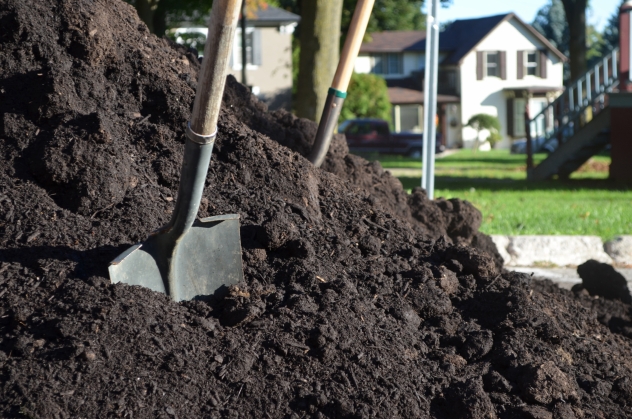THE CONSTRUCTIONIST.

MAY
20
COMMON PROBLEMS YOU MIGHT FIND WITH YOUR COMPOST
Compost is organic matter that has been decomposed in a process called composting. This process recycles various organic materials otherwise regarded as waste products and produces a soil conditioner which is rich in nutrients. Below are 6 common problems and solutions from Earthco Soil Mixtures that you might find with your compost.
1. My compost is wet
There are three factors that can cause wet compost: poor aeration, too much moisture, or not enough nitrogen-rich material in the pile.
A compost pile overburdened with materials that mat down when wet (such as grass clippings, spoiled hay, heaps of shredded tree leaves). These can become so dense that the pile's center receives no air. If you leave such a suffocating heap uncovered during a period of rain, you will end up with a soggy lump.
Luckily, soggy compost is fairly easy to fix. If relentlessly wet weather is part of the problem, place a loose-fitting lid or tarp over the pile. First you will need to turn the pile over and fluff it up thoroughly.
If you have some nitrogen-rich ingredients such as shellfish shell or fibrous, non-matting ingredients such as shredded corn cobs or sawdust, add them in. These will help to heat up and dry your compost pile.
2. My compost is dry and dusty
This issue is more common in summer months and in areas where summer rainfall is not very frequent. No matter what you put in your compost it just doesn't get enough moisture to support the bacterial life necessary to fuel the composting process. Luckily, the solution is very simple; just water it.
Try putting a sprinkler on top of your dry compost pile and run it for an hour; this will moisten the materials better than running an open hose on top. After sprinkling, check the center of the pile to be sure it's moist. Sometimes you might need to turn the pile and water the layers as you go.
3. There are bugs in my compost
Pill bugs and sow bugs are small crustaceans (not insects) that live on decaying organic materials. If you turn over the top layer of your compost pile and see thousands of tiny gray creatures that look like armadillos with seven pairs of legs each, you have discovered a nest of these bugs.
These bugs won't harm your compost; they're actually helping to break it down. But if you don't remove them from the finished mixture before you spread it on the garden, you might find them snipping off the emerging roots and leaves of your beans, beets, and other seedlings.
4. Plants are growing in my compost
Most likely these are not plants growing, but just weeds. If the plants are truly weeds, just pull them up and toss them back into the unfinished compost. On the other hand, if the plants are vegetation and you want to keep them, feel free to transplant them to your garden.
5. My compost smells bad
If your compost pile emits the sharp, nose-twisting stench of ammonia, it may contain too much nitrogen-rich material. It may also be too wet to allow aerobic bacteria to thrive. If it just "smells rotten" and lots of flies are hanging around it, you've most likely got a problem and need to get it under control.
Try mixing in some absorbent and slow-working materials such as chopped straw or shredded tree leaves. The pile should start to smell just as sweet as compost can.
6. Animals are eating my compost
This is a myth, animals do not eat compost; they tear up the pile to get at any fresh, edible garbage especially if you added "forbidden" meat scraps or fat that you recently buried.
Mixing non-matting ingredients with soil or wood ashes before burying it might discourage animals from trying to reach the hidden goods to begin with. But once such scavengers have gotten used to visiting your heap for a free meal, your best bet is to build or buy a covered bin to keep them away.
Compost provides a number of benefits such as improving soil quality and promoting healthy vegetative growth. If you’re having problems with composting or have questions, call Earthco Soil Mixtures today at 416-798-7050 to speak with one of our experts.
FIND A LOCATION NEAR YOU
BY POSTAL CODE
KMBY CITY















